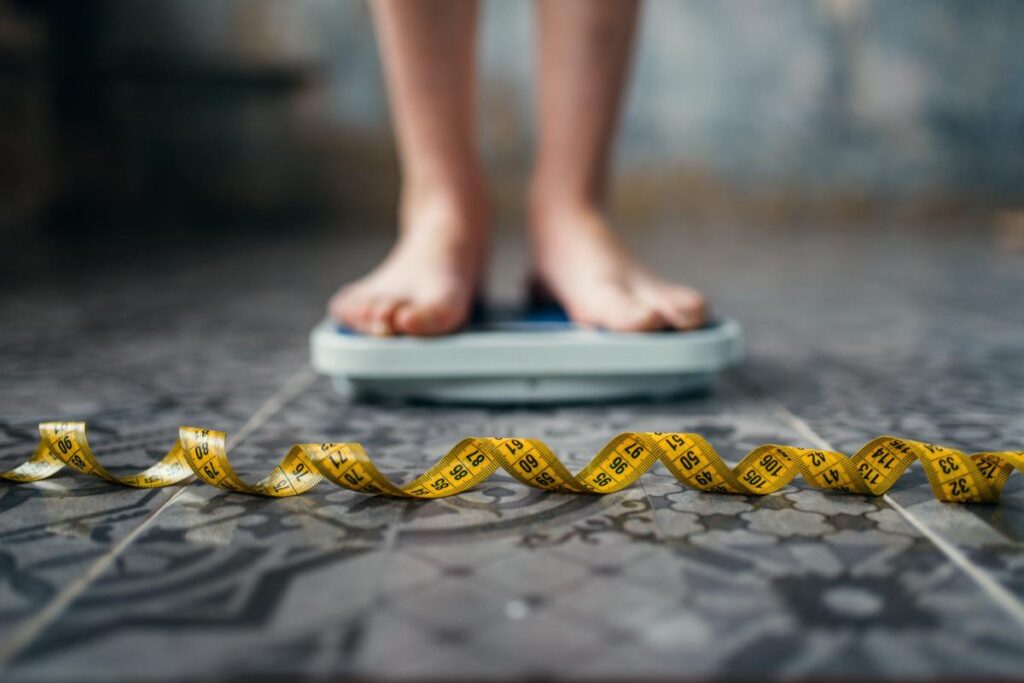If you or someone close to you is struggling with an eating disorder, it is important to know that you are not alone. Eating disorders can be debilitating, often impacting many aspects of a person’s life. The good news is that many resources are available, including 12-step programs for eating disorders, which have helped individuals recover.
If you or a loved one needs help overcoming an eating disorder, consider contacting us at The Ranch. We understand the complexity of food addiction and have the expertise and experience to guide you through recovery. Contact us today at 1.844.876.7680 to learn how our 12-step rehab program can help you achieve lasting recovery.
The 12-Step Program for Eating Disorders: What Is It?
A 12-step program for eating disorders is a structured program that emphasizes spiritual principles as a path to recovery. These principles help individuals cope with their emotions and eventually find long-term solutions through lifestyle changes. The 12-step program for food addiction also includes peer support and group accountability which play a crucial role in recovery.
The 12-Step Program for Food Addiction
The 12-step program for food addiction follows the same basic principles as the 12-step program for other addictions. The program provides a step-by-step guide to help individuals overcome their addiction to food. The program teaches people how to develop a new relationship with food. This is done by reconsidering food’s role in their lives and recognizing the underlying emotional triggers leading to disordered eating. The program also encourages individuals to look deeply at their past and current behaviors contributing to the addiction.
The 12-Step Food Addiction Program
A 12-step food addiction program is designed to help individuals break the cycle of disordered eating. The program helps individuals to identify the triggers that lead to compulsive overeating and to develop new coping strategies. The program also focuses on regular attendance at meetings and group therapy sessions. The 12-step food addiction program is a safe and effective approach to treating eating disorders.
The 12-Step Program for Eating Disorders in Action
The 12-step program for eating disorders is based on guiding principles and steps that help individuals rebuild their lives. Here is a brief overview of the 12 steps:
- Step 1: Admitting there is a problem with food addiction
- Step 2: Believing there is a higher power and that power can help us recover
- Step 3: Deciding to turn our will and our lives over to the care of our higher power
- Step 4: Conducting a personal inventory of our behaviors
- Step 5: Admitting to ourselves, to a higher power, and to another person the nature of our wrongs
- Step 6: Being entirely ready to have our higher power remove our character defects
- Step 7: Humbly asking our higher power to remove our shortcomings
- Step 8: Making a list of all persons we have harmed
- Step 9: Making amends to those we have harmed, whenever possible
- Step 10: Continuing to take personal inventory and promptly admitting when we are wrong
- Step 11: Seeking through prayer and meditation to improve our conscious contact with our higher power
- Step 12: Having a spiritual awakening as a result of these steps and carrying the message of the 12-step program to others.
How The Ranch Can Help
Eating disorders can be difficult to overcome, but with proper guidance and support through a 12-step rehab program, it is possible to recover from disordered eating successfully. At The Ranch, our addiction treatment programs offer various services to help individuals struggling with eating disorders, including drug and alcohol detox, inpatient residential rehab, and various mental health treatment modalities. We offer individual, family, group, and trauma-informed care to help our clients heal from past traumas and foster a healthier relationship with food.
Start Recovering at The Ranch Today
If you or someone you know is struggling with eating disorders, we encourage you to contact us at The Ranch. We understand that recovery is a journey, and we are here to support you every step of the way. Let us help you take the first step toward healing. Call 1.844.876.7680 or complete our web form to get started.

